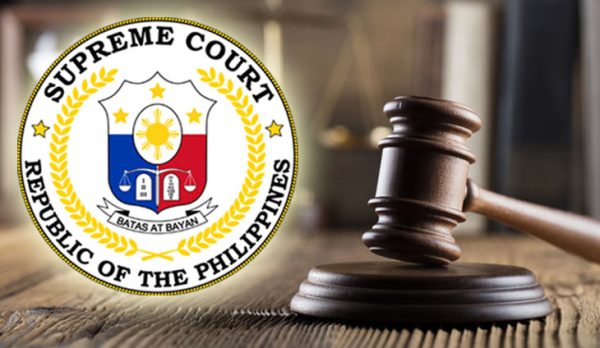‘A person who debases, degrades, demeans child’s intrinsic worth, dignity liable for damages’ – SC
August 14, 2023 · By REY G. PANALIGAN for mb.com.ph

‘A person who debases, degrades, demeans child’s intrinsic worth, dignity liable for damages’ – SC
The Supreme Court (SC) declared: “A person who debases, degrades, or demeans the child’s intrinsic worth and dignity as a human being can be held liable for damages” under the Civil Code.
The phrase “a person” in the SC decision, in effect, includes parents or guardians of the child.
The decision which was promulgated on April 26, 2023 and made public last Aug. 3, quoted the 2007 comment by the United Nations Committee on the Rights of the Child: “The best interest of a child cannot justify forms of cruel or degrading punishment which conflict with a child’s human dignity, including punishment which belittles, humiliates, denigrates, scapegoats, threatens, scares or ridicules a child.”
Except for the names of the petitioners in the SC case (Manila Bulletin decided not to publish them), the names of the other parties involved were redacted in the decision denominated as GR No. 235737. The decision was written by Senior Justice Marvic M.V.F. Leonen.
The SC decision affirmed with modification the 2017 ruling of the Court of Appeals (CA) which found a couple jointly liable for damages under the Civil Code for harassing, intimidating, and spreading false and malicious rumors about their son’s girlfriend and her parents.
The CA ruling affirmed the 2015 order of a regional trial court (RTC) which ordered the couple to pay the parents of their son’s girlfriend and the girlfriend herself P30,000 as moral damages, P20,000 exemplary damages, and P30,000 as attorney’s fees.
As modified, the SC imposed a six percent interest annually on the amounts of damages until fully paid.
Case records showed that the son of the couple and the daughter of the complainant-parents entered into a “mutual understanding” in 2004.
When his parents learned of their “closeness,” they showed their dislike to the girl by airing snide remarks in the presence of the latter’s classmates, schoolmates and other parents. The boy’s parents would call the girl a “flirt, prostitute, and sexually aggressive.”
The girl’s parents also accused the boy’s parents of spreading rumors among other parents, guardians and students about their daughter allegedly having a relationship with other boys and that she has been preying on boys since grade school.
The girl’s parents said that they and their daughter, then 14 years old, were exposed to blatant ridicule and humiliation which caused her to fall into depression and to neglect her studies.
They also pointed out that their daughter attempted to commit suicide by drug overdose and dropped out of school.
The girl’s parents filed a case before the RTC.
In their defense, the boy’s parents denied the allegations against them as they pointed out that they merely admonished the girl for committing acts “unbecoming specifically of a student leader.”
They also said the girl’s parents have no case against them since their actions were meant “to provide the moral fiber to enable their son to pursue his dreams.”
The RTC ruled in favor of the girl’s parents. When the CA affirmed the trial court’s ruling, the boy’s parents filed a petition before the SC.
The SC said:
“Here, publicly calling an impressionable 14-year-old with defamatory words such as … in front of her peers, teachers, and parents is undoubtedly a harsh, degrading, and humiliating experience to which no child should ever be subjected.
“Uttering such words are contrary to the Constitutional mandate and public policies.
“While parents and legal guardians are bestowed with the right and duty to provide direction to a child, a child must still be accorded equal and inalienable rights, ‘’consistent with the evolving capacities of the child.’
“In this regard, evolving capacities must not be seen as ‘an excuse for authoritarian practices that restrict children’s autonomy and self-expression and which have traditionally been justified by pointing to [a child’s] relative immaturity,’ but rather as a ‘positive and enabling process.’
“Here, petitioners attempt to justify their abusive acts under the pretense of exercising parental authority over the girl. They are gravely mistaken. Their acts do not constitute the kind of parental authority contemplated by the Constitution as they are not the girl’s parents or legal guardians.
“Thus, regardless of their intentions, petitioners do not exercise any parental authority over the girl. In any case, resorting to harsh and degrading methods of discipline cannot be countenanced by this Court as it is contrary to public policy.
“Here, petitioners failed to prove that there exist glaring errors committed on the part of the lower courts.
“On the other hand, based on the records, petitioners undoubtedly exposed the girl to public ridicule which caused the latter mental anguish, besmirched reputation, wounded feelings, and social humiliation.
“These acts are contrary to public policy; therefore, petitioners are liable for damages pursuant to Articles 21 of the Civil Code.
“Hence, ‘to serve as a deterrent to future and subsequent parties from the commission of a similar offense,’ the exemplary damages are awarded not only to compensate respondents (the girl and her parents), but more importantly to remind the petitioners of their fundamental duty as parents, not only to rear our youth for civic efficiency and the development of moral character, but also to serve as role models.”






